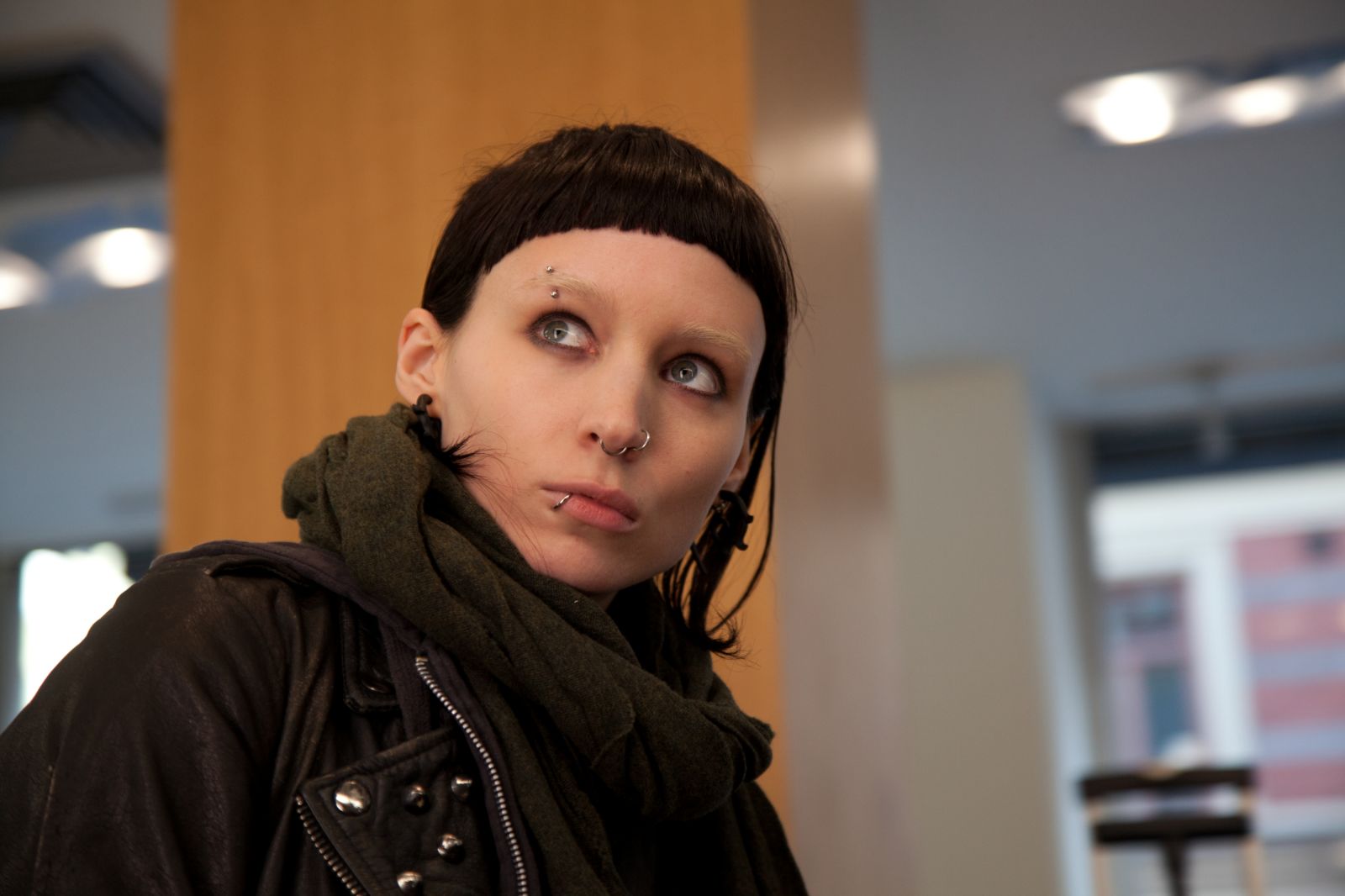Review: The Girl with the Dragon Tattoo
December 20, 2011 by Danny Baldwin

When David Fincher’s The Girl with the Dragon Tattoo “remake” was announced, the prevailing criticism in the blogosphere was: “Is this really necessary?” Aside from the subtitles, the 2009 Swedish adaptation of the popular Stieg Larsson novel was already perfectly accessible for American audiences, with rather a Western style of storytelling and a kick-ass heroine.
While its necessity will undoubtedly continue to be debated–those who admire the film will likely argue that its existence is justified, while those who do not will claim otherwise–there is no doubting that Fincher’s The Girl with the Dragon Tattoo is its own movie. Even though the story has largely remained the same–save for certain details in the third act and the epilogue–the way that it is told could not be more different.
The primary difference is that, where the Niels Arden Oplev adaptation felt like pulp fiction (true to the reputation of the novel), Fincher’s version plays more like the dark serial killer procedurals he has become known for. Raw passion overflowed from the original, but here it is only found in Rooney Mara’s interpretation of the title character — the rest of the movie feels calculated, even cerebral.
In the tonal sense, I found the Oplev more engaging, because the source hardly lends itself to a complex masterwork. But Fincher and company’s artsier approach is often so commanding, you forget that it doesn’t match the material; their Girl with the Dragon Tattoo excels as a sheer tour de force of style. Clocking in at the quickest 2-hours-and-38-minutes you may ever experience, the economy of the editing alone is overwhelming, with such an attention to detail that you are often liable to forget that the narrative is that of a simple paperback mystery.
The other technical elements, many of them credited to the same team that worked on Fincher’s Oscar-winning The Social Network, are just as ace. Once again, cinematographer Jeff Cronenweth’s digital lensing is top-notch — the grey Swedish skies are penetrating and the green, blue, and amber hues of the various interiors are striking. Trent Reznor and Atticus Ross are equally successful in their sophomore theatrical score, kicking things off with an arresting cover of Led Zeppelin’s “Immigrant Song” over the opening titles and sustaining the high level of intensity throughout.
The performances are strong, as well. While many will enter the new Girl with the Dragon Tattoo ready to judge whether Rooney Mara’s Lisbeth Salander stacks up to Noomi Rapace’s, this will likely become a non-issue as they watch the film, because Mara’s performance stands on its own. She is every bit as fierce, electric, and believable in the role as one could hope for, delivering a memorable interpretation of a character that has already become iconic. Daniel Craig fills her partner Mikael Blomkvist’s shoes just as successfully, with the perfect stoic charisma. Likewise, Christopher Plummer and Stellan SkarsgÃ¥rd are rock-solid as the primary members of the Vanger family, which Mikael and Lisbeth have been called upon to investigate.
The one element of the film that Fincher’s more serious approach doesn’t exactly jive with is the second-act rape scene, which was also the most controversial element of the first film. While Fincher’s film may not be as pulpy as Oplev’s, it is still primarily intended as a populist entertainment, as there is nothing narratively deep about it. This makes the severity with which Lisbeth’s rape (and her subsequent vengeance) is depicted all the more morally questionable. I’m not yet ready to pass judgment on whether or not it is unacceptable exploitation–to the contrary, perhaps it’s good that the act is even more unsettling here than it was in the original–but the scene will likely end up the most hotly debated of its kind since 1971‘s Straw Dogs.
Rape scene notwithstanding, Fincher’s The Girl with the Dragon Tattoo towers above the “Was it necessary?”-debate because the film’s artistic merits make for a far more enriching discussion. Even though it is unlikely to generate emotional investment from all but the most diehard of Larsson fans, the film is one of the most technically accomplished of the year, and for that it deserves the attention of mainstream audiences.
![]()
* * *
The Girl with the Dragon Tattoo (2011, USA). Produced by Ceán Chaffin, Anni Faurbye Fernandez, Malte Forssell, Ryan Kavanaugh, Berna Levin, Scott Rudin, Søren Stærmose, Ole Søndberg, Mikael Wallen, and Steven Zaillian. Directed by David Fincher. Written for the screen by Steven Zaillian, based on the novel by Stieg Larsson. Starring Daniel Craig, Rooney Mara, Christopher Plummer, Stellan Skarsgård, Steven Berkoff, and Robin Wright. Distributed by Sony Pictures Releasing. Rated R, with a running time of 158 minutes.
